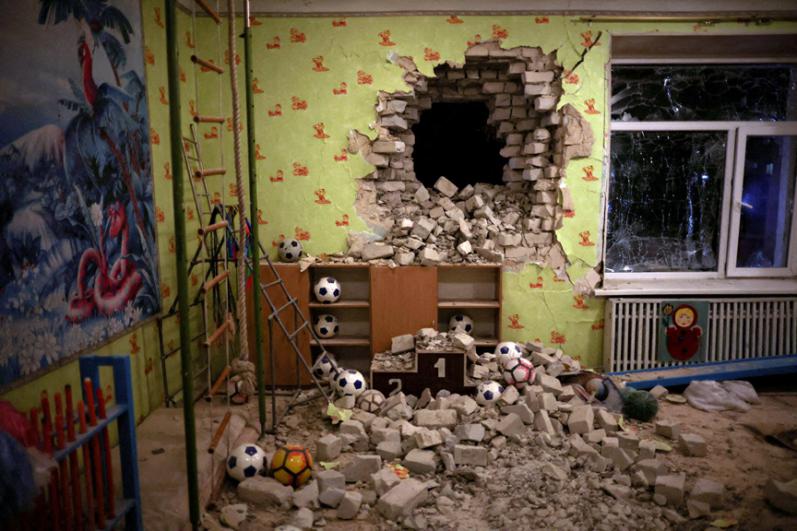Forestalling the rush to war
When the storms of war are gathering, warlike men seldom listen to popes.
As the United States was preparing its "shock and awe" campaign against Saddam Hussein's Iraq, St. John Paul II spoke with increasing urgency against war. He called the use of force "the last recourse, after having exhausted every other peaceful solution."
Recalling his personal experience of World War II, he counseled leaders that "to reflect on one's duties to engage in energetic negotiations does not mean to be humiliated, but to work with responsibility for peace."
We did not listen, and unfortunately what the pope feared would happen came true: "In the face of the tremendous consequences that an international military operation would have for the population of Iraq and for the balance of the Middle East region, already sorely tried, and for the extremisms that could stem from it, I say to all: There is still time to negotiate."
But time ran out, and the consequences still haunt us.
Now Pope Francis is calling for peace as another storm threatens, this time over Ukraine. "May the prayers and supplications that today rise up to heaven touch the minds and hearts of world leaders, so that dialogue may prevail and the common good be placed ahead of partisan interests," he said Jan. 26.
Whether a pope's entreaty has any more success this year than in 2003 only time will tell. Russian President Vladimir Putin comes from a nation of chess players, and his Ukraine gambit has kept much of the world guessing as to his true intentions.
Wars are easy to get into but usually difficult to extricate from. Since the Russian invasion of Crimea and its occupation of part of eastern Ukraine, an estimated 14,000 Ukrainian soldiers and civilians have died, and no end is in sight.
Even when initial victory seems assured because of the overwhelming power of one army, as we saw in Iraq, a phenomenal price is paid in blood and treasure.
Ukrainians warn that a similar fate awaits the Russians should they invade. With neighborhood militias being trained to support the military effort, Ukrainians say they are now preparing to defend their country, no matter the cost.
The Catechism of the Catholic Church notes the duties of every citizen: "Submission to authority and co-responsibility for the common good make it morally obligatory to pay taxes, to exercise the right to vote and to defend one's country" (No. 2240). For Ukrainians, the cost of defending their country is a price they are willing to pay.
For the Vatican, this is a last option.
In an incisive essay published Jan. 24 by Catholic News Service, Victor Gaetan described how the Vatican's diplomats look at such a crisis. "The Holy See often sees through the eyes of multiple parties at odds with each other and has empathy for these diverse perspectives," wrote Gaetan, the author of "God's Diplomats: Pope Francis, Vatican Diplomacy, and America's Armageddon."
He said that the Vatican understands the Russian concerns as well as the Ukrainian concerns. But the Vatican also takes a realpolitik view to the clash of international powers, recognizing that self-interest, whether military, economic, or national pride, is what drives them.
For both St. John Paul and Pope Francis, the alternative to conflict and the first option must always be dialogue, with war the very last resort.
As St. John Paul said in 2003, "We know well that peace is not possible at any price. But we all know how great is this responsibility" to do everything possible to avoid war.
- Greg Erlandson is director and editor-in-chief of Catholic News Service.



















